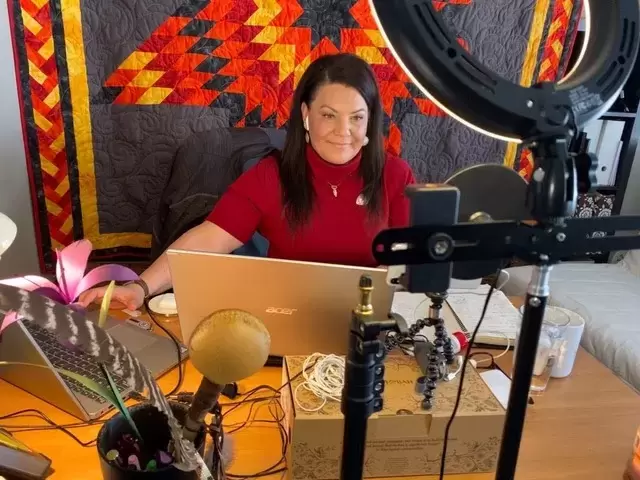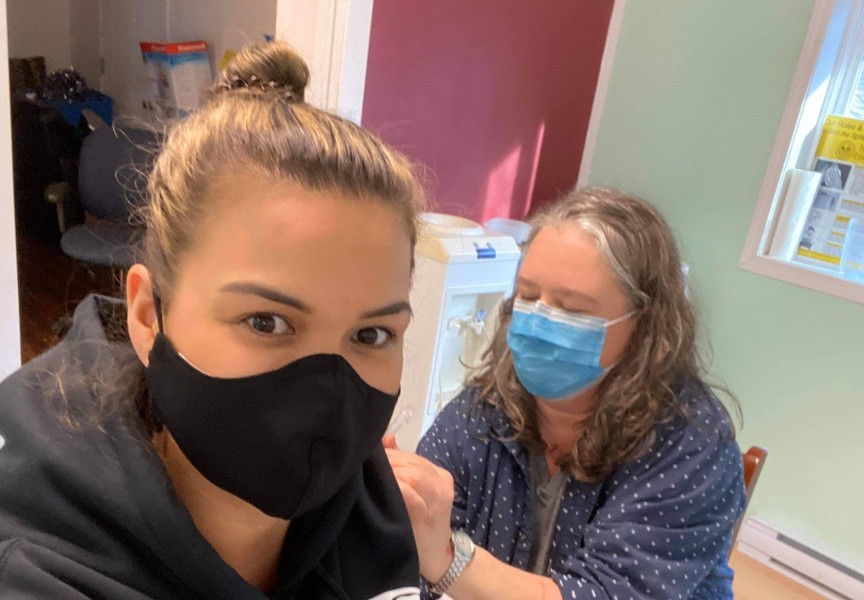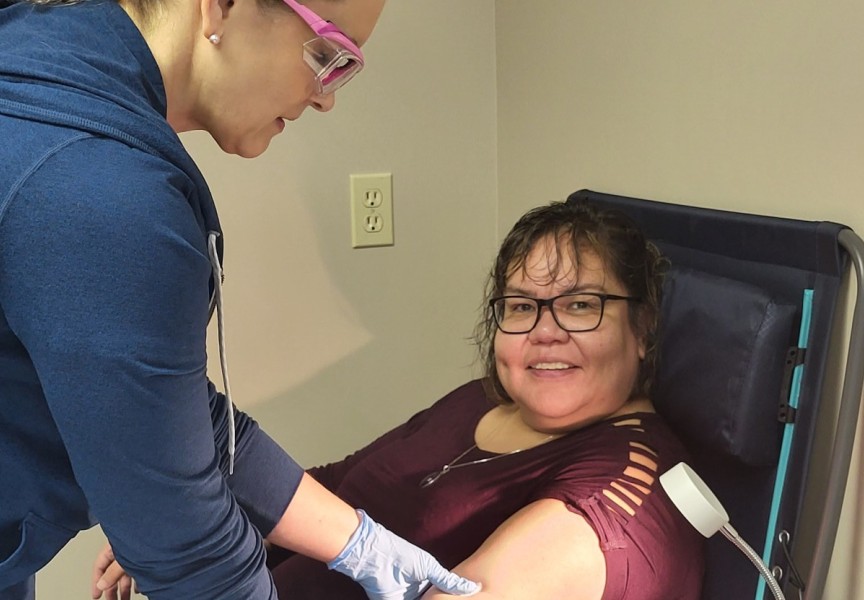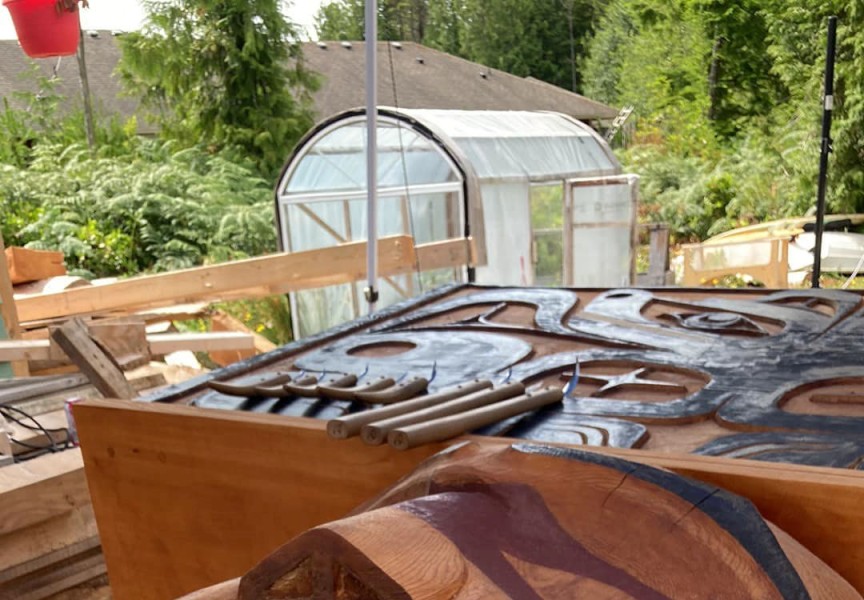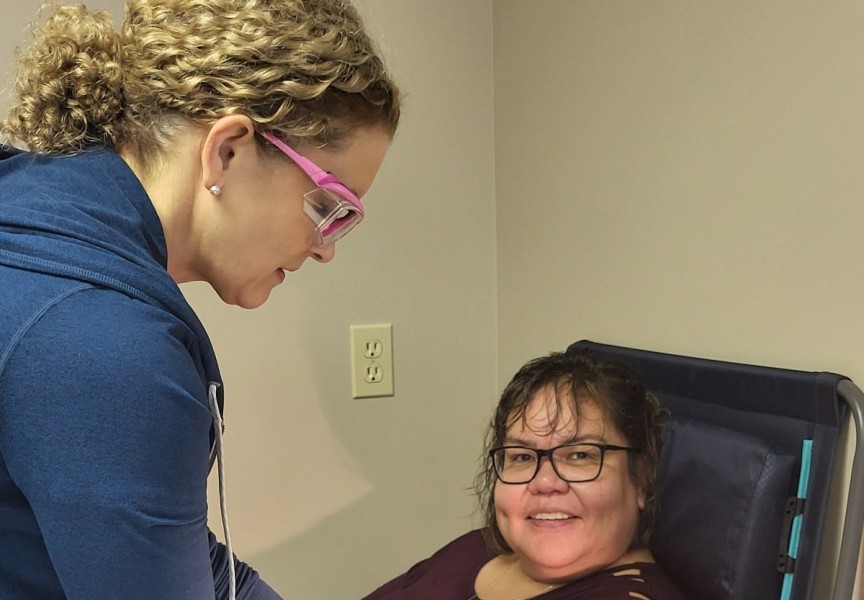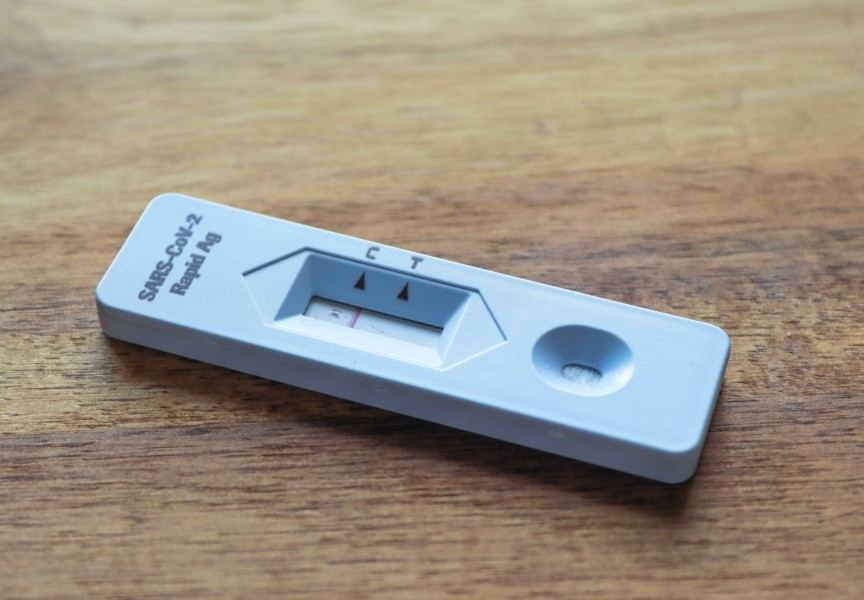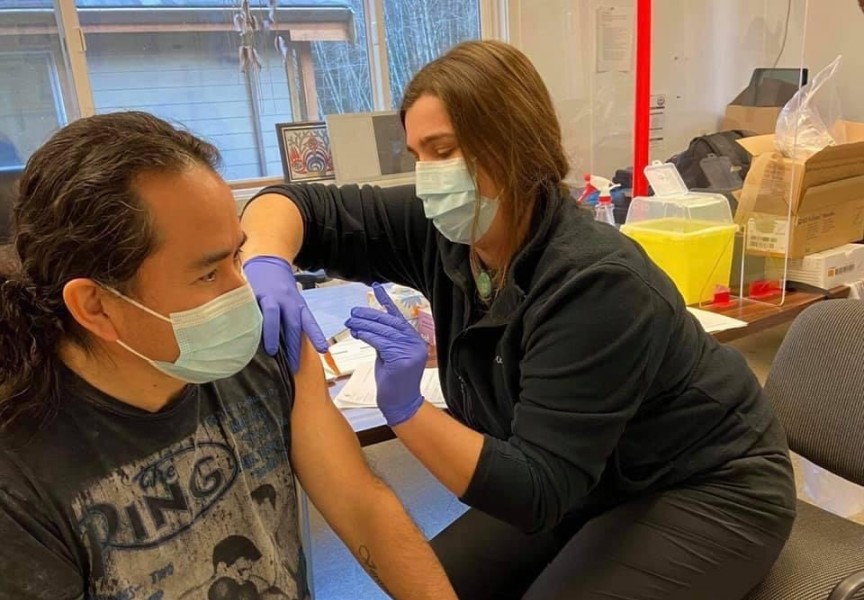When Canada went into lockdown last March to combat COVID-19, the First Nations Health Managers Association (FNMHA) knew they needed to get information out, and fast.
“There's been such a barrage of information coming out, especially as the science evolves and changes,” said Marion Crowe, FNMHA chief executive officer. “We wanted to be able to [create] a central place to gather together where [viewers] could go and see people from different nations – people that look like us, sound like us, laugh like us.”
Rising to the challenge, they launched a weekly one-hour virtual town hall and recently celebrated the release of their 40th episode.
The series features guest speakers such as Dr. Evan Adams, deputy chief medical officer for Indigenous Services Canada, Carol Hopkins, the executive director of the Thunderbird Partnership Foundation, and Dr. Brenda Restoule, the chief executive officer of the First Peoples Wellness Circle.
Crowe said she is grateful for the regional discussions that are happening around COVID-19, but creating a national dialogue among Indigenous people across Canada allows communities to pool their information and learn from each other.
Covering topics such vaccinations, by looking at the side effects and breaking down each of the authorized vaccines, Crowe said she wants to provide Indigenous communities with reliable information so they can make informed decisions about how they want to proceed.
“[The vaccine] is something only First Nations people can understand in terms of that reluctance,” she said. “There's the historical mistrust between government and First Nations.”
Some First Nations people are questioning being prioritized and are hesitant to receive the vaccine because of the federal government's history of experimenting on Indigenous people, said Crowe.
“My father was one of those people,” she said. “I get why there’s a concern.”
A recent paper published by the Canadian Medical Association journal highlights medical experimentation and the roots of COVID-19 vaccine hesitancy among Indigenous people.
Historian Maureen Lux documented multiple instances of medical experimentation on Indigenous people, including a 12-year trial of an experimental vaccine for tuberculosis on Cree and Nakoda Oyadebi infants in Saskatchewan during the 1930s and 1940s, reads the paper.
“A whole range of experimental surgical and drug treatments were also administered to Indigenous patients, without their consent, within Canada’s racially segregated system of Indian Hospitals during the early postwar years,” the paper continued.
By coming together collectively to talk about the science and approaching it through an Indigenous lens, Crowe said that Western medicine can be weaved into traditional approaches.
“Bring in the sweet grass, the sage, all of our [traditional medicine] and mix it with that Western needle,” she said. “It’s just that enhanced layer of protecting me, you and the others that are around.”
Viewers and listeners are encouraged to send in their questions to fnhma@ihtoday.ca.
“If somebody is feeling uncomfortable calling Telehealth Ontario, for example, or going to their health centre because their auntie works there, and has a medical question, [they] can get them in facelessly and benefit others asking those questions too,” said Crowe.
Instead of telling listeners to stay six-feet apart, Crowe opts for descriptions like staying a “moose-length apart.”
“We are cautious about how we share the messages,” she said. “We’re talking about them in a culturally appropriate way … making it real and relevant to how [Indigenous people] look at things.”
As of Friday, April 30, Crowe said that 370,000 COVID-19 vaccine doses have been administered to Indigenous people in Canada living on-reserve. Of those, 170,000 were second doses.
The weekly town halls that average around 10,000 viewers are planned to continue until the end of June, at which point Crowe said she hopes they will no longer be needed.
Although she loves hearing from guest speakers and interacting with community members, Crowe said she looks forward to the day when we are ready to move beyond COVID-19 as a society.
Until then, Crowe said the weekly town hall continues to be the “one thing that is positive in all of the darkness surrounding COVID-19.”

